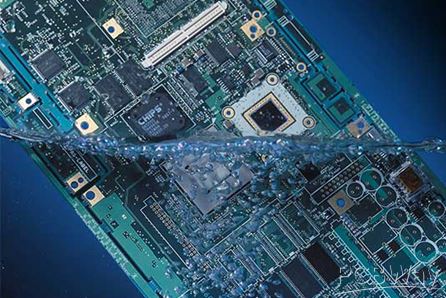Mixed-bed and carbon filters can play a crucial role in PCB (Printed Circuit Board) cleaning systems by helping to purify and condition the cleaning solutions used in the process. Here's how these filters work in the context of PCB cleaning systems:
Mixed-Bed Filters in PCB Cleaning Systems:
- Purification of Rinse Water: PCB cleaning systems often involve multiple rinse stages to remove cleaning agents, residues, and contaminants from the PCB and components. Mixed-bed filters are used to purify the rinse water, ensuring that it is free from ions and impurities that can leave residues on the PCB after drying.
- Deionization: Mixed-bed filters effectively deionize water by removing both cations (positively charged ions) and anions (negatively charged ions). This is particularly important in PCB cleaning because any remaining ions on the PCB surface can lead to electrical shorts or corrosion.
- Preventing Ionic Contamination: Mixed-bed filters help prevent ionic contamination of PCBs during the cleaning and rinsing process. By producing highly purified water, they ensure that the rinse water itself does not introduce additional ions or contaminants to the PCB surface.
- High-Purity Rinse: The purified water from mixed-bed filters is typically used in the final rinse stages of PCB cleaning systems to ensure a high-purity, residue-free finish.
Carbon Filters in PCB Cleaning Systems:
- Removal of Organic Contaminants: Carbon filters, specifically activated carbon filters, are used in PCB cleaning systems to remove organic contaminants from the cleaning solution. Organic contaminants can come from flux residues, oils, greases, and other sources. Carbon filters are effective at adsorbing these organic compounds, ensuring that the cleaning solution remains clean and efficient.
- Odor Removal: Some PCB cleaning solutions, especially those containing solvents, may have strong odors due to the presence of volatile organic compounds (VOCs). Carbon filters can help remove these odors by adsorbing the VOCs.
- Maintaining Solution Quality: By continuously filtering the cleaning solution through carbon filters, PCB cleaning systems can maintain the quality of the cleaning agent, ensuring consistent cleaning performance over time.
- Extended Solution Life: Effective removal of organic contaminants through carbon filtration can extend the usable life of the cleaning solution, reducing the frequency of solution replacement.
In PCB cleaning systems, the use of mixed-bed and carbon filters helps ensure that the cleaning and rinsing processes are efficient, produce high-quality, contaminant-free results, and contribute to the overall reliability of the electronic assemblies. These filters play a critical role in maintaining the cleanliness of the PCBs and preventing contamination-related issues.
|
Return to home page
|

